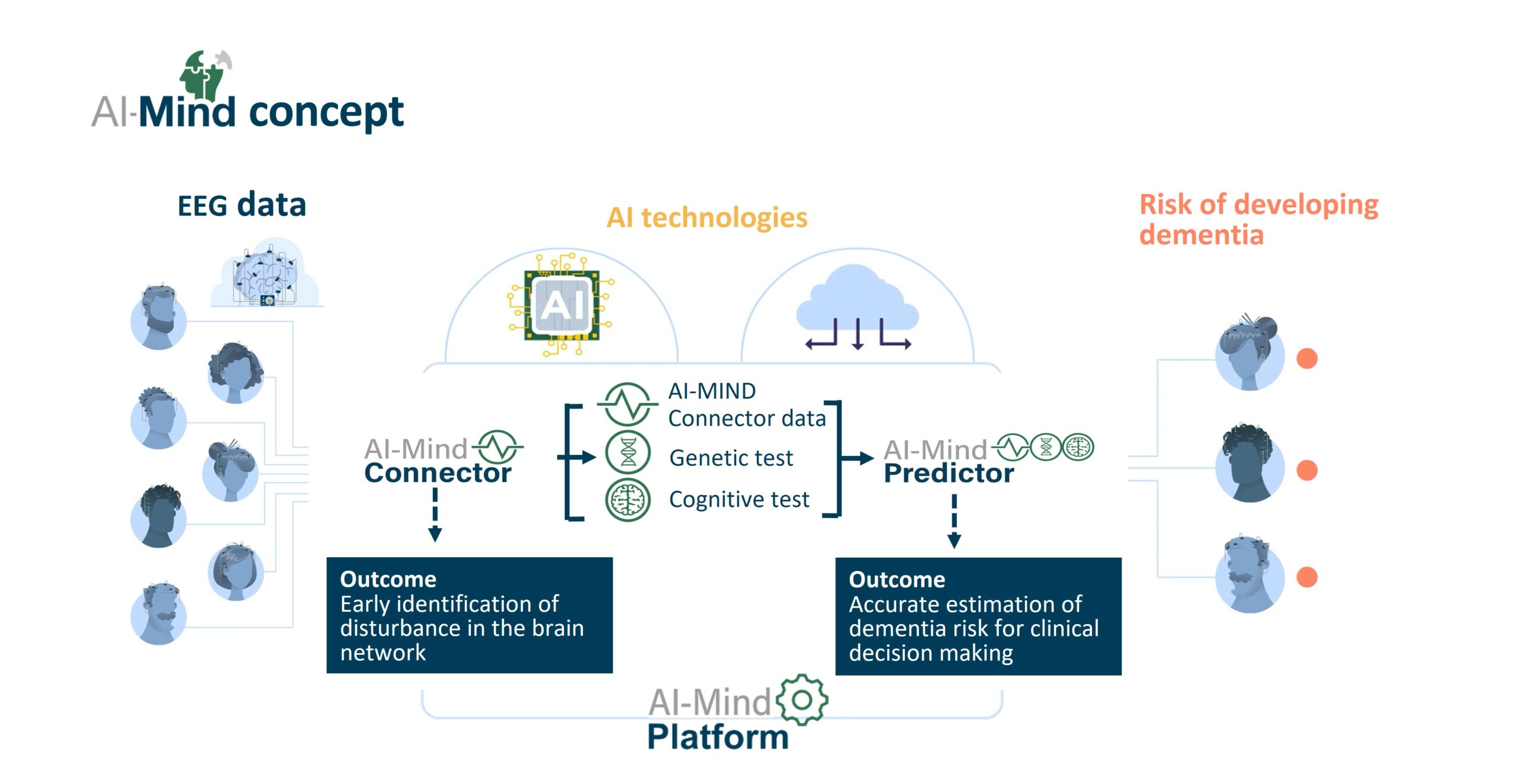AI-Mind approach
Artificial intelligence (AI) is transforming dementia diagnosis and treatment, gaining increasing attention from healthcare providers and policymakers. AI-Mind is at the forefront of this innovation. Through international collaboration and its study, project partners are developing two advanced AI-based tools to accurately assess dementia risk in people with mild cognitive impairment (MCI).
These tools process routinely collected data in an innovative way while adhering to the European Union’s AI Act, which sets guidelines for safe and ethical AI use in healthcare. AI-Mind ensures compliance with these regulations, prioritizing transparency, accuracy, and data protection to build trust in AI-driven diagnostics.
AI-Mind tools
AI has the potential to improve healthcare quality while reducing costs. AI-Mind leverages the opportunities offered by AI to develop innovative tools for the prediction, research and diagnosis of dementia. However, few AI technologies have been successfully implemented in clinical practice with proven benefits. To evaluate AI-Mind tools, we use an early health technology assessment (HTA) framework that provides:
- A multidisciplinary, scientific approach to assessing AI tools.
Insights into potential cost-effectiveness and health benefits.
Click below to try our interactive analytical tool for cost-effectiveness and learn more about AI and HTA from our videos.
Watch presentations
AI-Mind’s tools will be integrated into a cloud-based platform for easy implementation by healthcare professionals. The system will be tested and validated in the clinical settings ensuring:
User-friendly design and intuitive software.
Effective clinical application and performance validation.
AI-Mind data
The increasing availability of online resources means that the data should be created with longevity in mind. AI-Mind prioritises data protection, interoperability, and long-term usability following strict data regulations, including:
- EU General Data Protection Regulation (GDPR).
- National data protection laws.
- Brain Imaging Data Structure (BIDS) standards.
Through the AI-Mind study, various data types are collected from 1’000 enrolled participants across five clinical centres. Including:
- Brain imaging (electroencephalography -EEG and magnetoencephalography – MEG)
- Digital cognitive test results.
- Blood samples.
- Questionnaire and neuropsychological test data
Watch the webinar recording to learn more about managing data in AI healthcare projects from our webinar.
Watch webinar
AI-Mind models
AI-Mind model is a program, algorithm or mathematical model derived from AI-Mind data using either classical machine learning (ML) or deep learning techniques (DL). ML is an artificial intelligence technique that can be used to design and train software algorithms to learn from and act on data with minimal human intervention. DL can be described as a machine learning technique that teaches computers to do what comes naturally to humans: learn by example. The AI model allows it to reach a conclusion or make a prediction when provided with sufficient information e.g., AI-Mind Predictor and Connector models fed
For the model development and integration in AI-Mind tools, we explore two AI approaches, probabilistic machine learning using brain network features and deep learning modelling based on non-processed source-reconstructed data. We evaluate these approaches through testing, bias control and assessment of predictive abilities. Thanks to that we will be able to identify the most robust AI-based diagnostic candidates for integration into the AI-Mind digital platform.


